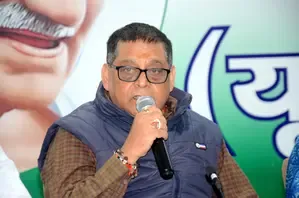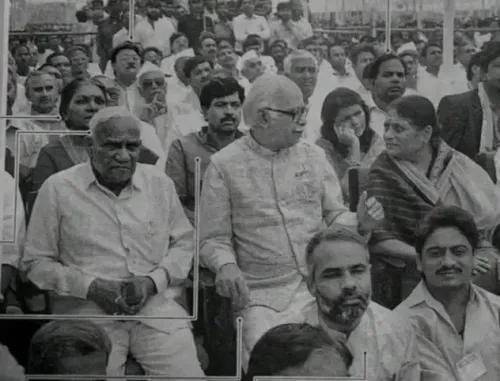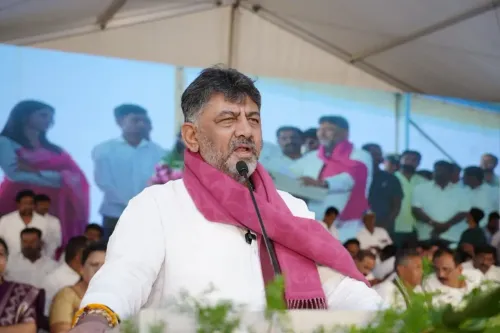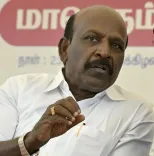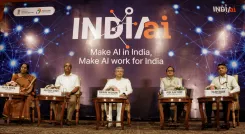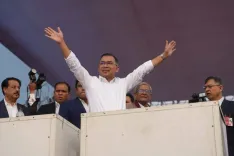What Happened at the BJP’s ‘Pasmanda Milan Samaroh’ in Patna?
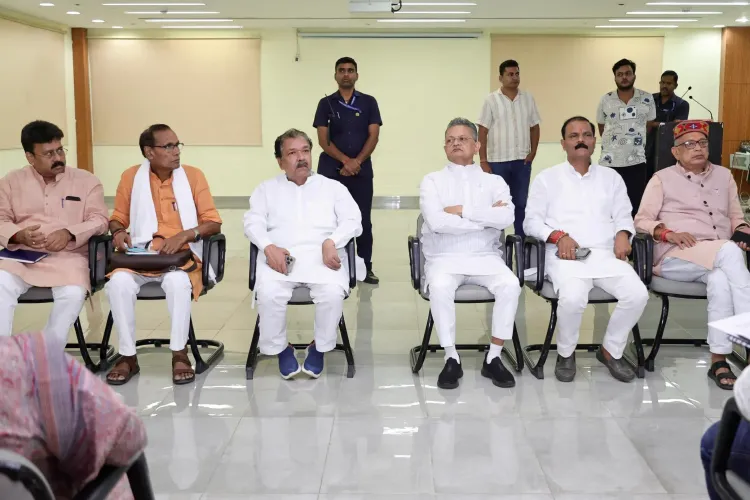
Synopsis
Key Takeaways
- Pasmanda community mobilization at BJP events is increasing.
- Waqf Act highlights the need for equitable rights.
- Political dynamics in Bihar are changing ahead of 2024 elections.
- Community representation is a central theme in recent discussions.
- Engagement of marginalized groups is crucial for party strategies.
Patna, June 30 (NationPress) The ‘Pasmanda Milan Samaroh’ was held on Monday at the Atal Auditorium within the BJP state office, drawing a significant crowd from the Pasmanda community.
The event was inaugurated by BJP State President Dilip Jaiswal and Bihar Deputy Chief Minister Samrat Choudhary, who together lit the ceremonial lamp.
A notable number of Pasmanda community members registered for BJP membership during this event, with Jaiswal administering the membership oath to the newcomers.
In his address, Jaiswal emphasized that the implementation of the Waqf Act has raised awareness among Pasmanda Muslims, who constitute 90 percent of the Muslim demographic in Bihar and are classified as OBC.
“The earnings derived from Waqf properties should rightfully belong to Pasmanda Muslims, yet in the past, they were denied these rights. With the initiative of Prime Minister Narendra Modi, they are reclaiming their entitlements. Our Prime Minister has a clear vision of ‘Sabka Saath, Sabka Vikas’, which ensures that our Pasmanda Muslim brothers and sisters receive their rightful share of Waqf properties. Both the Centre and the state government are dedicated to this cause,” Jaiswal stated.
Gulam Ahmed Ansari, hailing from Mahua in Vaishali district, remarked that the traditional “MY (Muslim-Yadav)” alliance of the RJD no longer stands strong in Bihar, especially evident during the upcoming 2024 Lok Sabha elections.
“The impoverished segment constitutes a significant portion of Bihar’s electorate, and Pasmanda Muslims rank among the most disadvantaged. RJD leaders have let us down; why should we support them? We have been marginalized, but Prime Minister Modi has taken steps to integrate Pasmanda Muslims into the mainstream. Conversely, Lalu Prasad Yadav failed to provide tickets to Pasmanda Muslims,” Ansari expressed.
Similarly, Naseem Anwar from Bihta in Patna district conveyed, “Since independence, numerous Prime Ministers have served the nation, yet none have considered the Pasmanda Muslims. It was Prime Minister Modi who advocated for their rights, asserting that Pasmanda Muslims should have representation on the Waqf Board. In Bihar, Muslims account for 18 percent of the population, with 14 percent identifying as Pasmanda Muslims, who now align with PM Modi and the BJP.”


